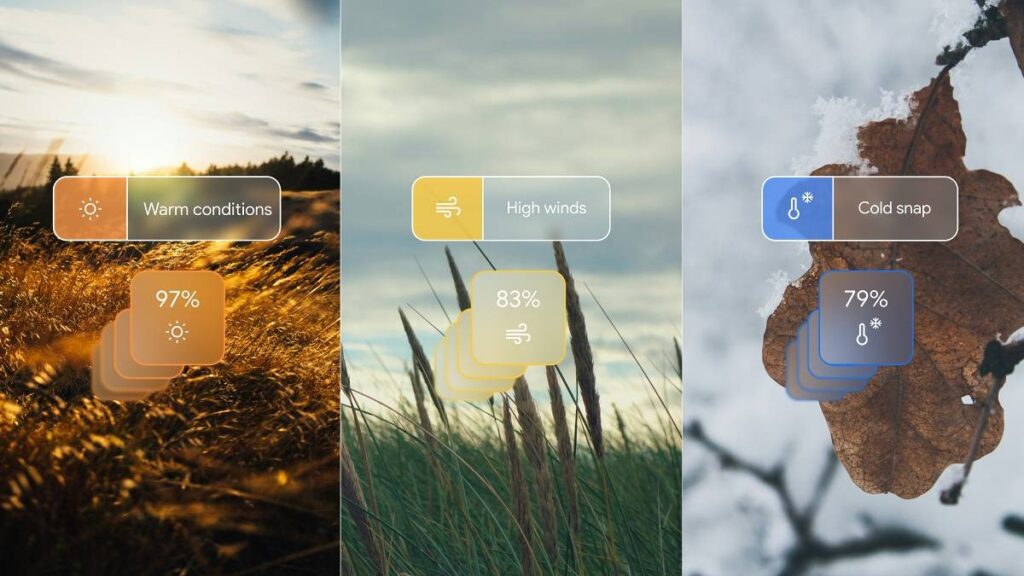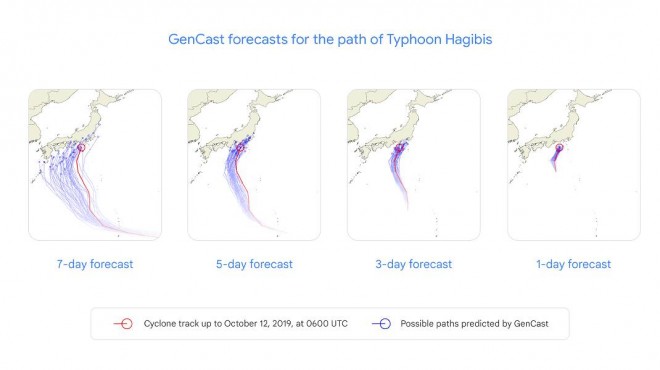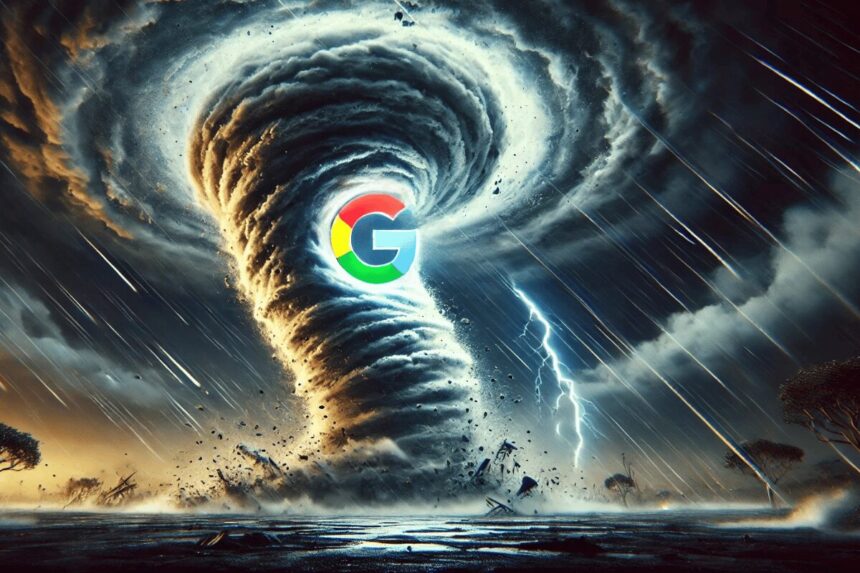AI is becoming Google’s go-to tool, and now, it’s taking on weather forecasting. The company has unveiled GenCast, a “high-resolution AI ensemble model,” which promises to revolutionize how we predict weather. This breakthrough was detailed in Nature, highlighting Google’s latest use of AI in impactful ways.
Accurate weather forecasting is crucial for everything from planning your daily activities to disaster preparedness and even managing renewable energy. GenCast outperforms ECMWF’s ENS, delivering more accurate forecasts up to 25 days ahead.

GenCast is a diffusion model, similar to those used in AI image generators, but fine-tuned specifically for Earth’s unique geometry. Google trained it using four decades of historical data from ECMWF’s archives to improve its weather predictions.
Google tested GenCast on 1,300 forecasts using data up to 2018, outperforming ENS in 97.2% of cases and being 99.8% more accurate for forecasts 36 hours ahead.

As an example, Google tasked GenCast with forecasting the path of Typhoon Hagibis, which struck Japan in 2019. In a demo, the typhoon’s actual path appears in red, while Google’s AI predicts paths in blue. Seven days out, the predictions spread, but as the storm nears landfall, they converge, closely matching the actual path.
One of the key benefits of GenCast is giving local authorities more time to prepare for severe weather. It can also predict wind speeds around wind farms, monitor conditions over solar farms, and more.
As an “ensemble model,” GenCast generates over 50 different predictions, each with its own probability. A 15-day forecast takes 8 minutes on a Google Cloud TPU v5, compared to hours on a supercomputer. What’s even better is that GenCast can generate multiple predictions in parallel, making it far more efficient.
Google is making GenCast available as an open model, sharing both its code and weights. The company commits to collaborating with agencies and scientists to improve future weather predictions.









